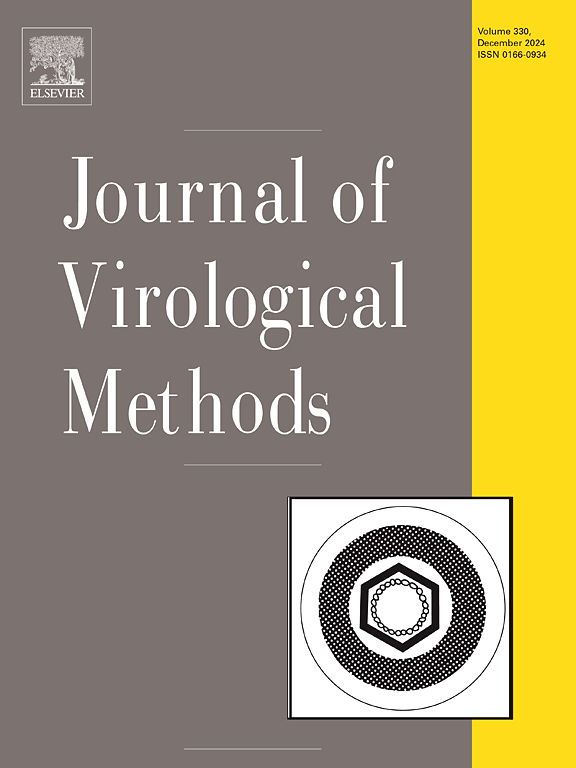AI-driven strategies for enhancing Mpox surveillance and response in Africa
IF 1.6
4区 医学
Q3 BIOCHEMICAL RESEARCH METHODS
引用次数: 0
Abstract
Mpox, a zoonotic viral disease endemic to several African countries, has re-emerged as a significant public health concern, particularly in regions with limited healthcare resources. Current public health strategies in Africa fall short due to fragmented surveillance systems, delayed diagnostic capabilities, and inadequate resource distribution networks that cannot effectively respond to rapidly evolving outbreaks in remote and underserved areas. This narrative review explores the potential of Artificial Intelligence (AI) to enhance the management and control of Mpox in Africa. AI technologies, including machine learning and predictive analytics, can significantly improve early detection, surveillance, contact tracing, case management, public health communication, and resource allocation. AI-driven tools can analyze large datasets to identify outbreak patterns, automate contact tracing through mobile data, optimize treatment plans, and tailor public health messages to specific communities. However, the successful implementation of AI faces challenges, including limited digital infrastructure, data quality issues, ethical concerns, and the need for capacity building. Furthermore, ongoing research is essential to refine AI algorithms and develop culturally sensitive applications. This review emphasizes the need for investment in infrastructure, training, and ethical frameworks to fully integrate AI into public health systems in Africa. By addressing these challenges, AI can play a pivotal role in mitigating the impact of Mpox and enhancing the resilience of healthcare systems against future infectious disease outbreaks. This represents a novel comprehensive synthesis of AI applications specifically for African Mpox control, providing a critical framework for evidence-based implementation strategies in resource-limited settings.
在非洲加强麻疹监测和应对的人工智能驱动战略
麻疹是一种在若干非洲国家流行的人畜共患病毒性疾病,已重新成为一个重大的公共卫生问题,特别是在卫生保健资源有限的区域。由于监测系统支离破碎、诊断能力滞后以及资源分配网络不足,无法有效应对偏远和服务不足地区迅速演变的疫情,非洲目前的公共卫生战略存在不足。本综述探讨了人工智能(AI)在加强非洲麻疹管理和控制方面的潜力。包括机器学习和预测分析在内的人工智能技术可以显著改善早期发现、监测、接触者追踪、病例管理、公共卫生沟通和资源分配。人工智能驱动的工具可以分析大型数据集以确定疫情模式,通过移动数据自动追踪接触者,优化治疗计划,并针对特定社区定制公共卫生信息。然而,人工智能的成功实施面临着挑战,包括有限的数字基础设施、数据质量问题、道德问题以及能力建设的需求。此外,正在进行的研究对于完善人工智能算法和开发具有文化敏感性的应用程序至关重要。本综述强调需要在基础设施、培训和道德框架方面进行投资,以便将人工智能充分纳入非洲的公共卫生系统。通过应对这些挑战,人工智能可以在减轻麻疹的影响和增强卫生保健系统对未来传染病暴发的抵御能力方面发挥关键作用。这代表了专门针对非洲麻疹控制的人工智能应用的一种新颖的全面综合,为在资源有限的情况下基于证据的实施战略提供了一个关键框架。
本文章由计算机程序翻译,如有差异,请以英文原文为准。
求助全文
约1分钟内获得全文
求助全文
来源期刊
CiteScore
5.80
自引率
0.00%
发文量
209
审稿时长
41 days
期刊介绍:
The Journal of Virological Methods focuses on original, high quality research papers that describe novel and comprehensively tested methods which enhance human, animal, plant, bacterial or environmental virology and prions research and discovery.
The methods may include, but not limited to, the study of:
Viral components and morphology-
Virus isolation, propagation and development of viral vectors-
Viral pathogenesis, oncogenesis, vaccines and antivirals-
Virus replication, host-pathogen interactions and responses-
Virus transmission, prevention, control and treatment-
Viral metagenomics and virome-
Virus ecology, adaption and evolution-
Applied virology such as nanotechnology-
Viral diagnosis with novelty and comprehensive evaluation.
We seek articles, systematic reviews, meta-analyses and laboratory protocols that include comprehensive technical details with statistical confirmations that provide validations against current best practice, international standards or quality assurance programs and which advance knowledge in virology leading to improved medical, veterinary or agricultural practices and management.

 求助内容:
求助内容: 应助结果提醒方式:
应助结果提醒方式:


